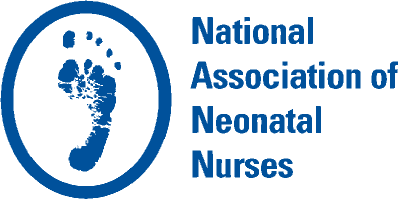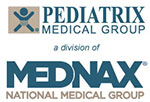NANNP Corner
Neonatal APRNs: Precepting NNP Students
Bobby Bellflower, DNSc NNP-BC FAANP
NANNP Council Chair
Do you remember what it was like to be a Neonatal Nurse Practitioner (NNP) student? Although it has been many years, I can vividly recall many of my classes, especially my clinical rotations. There were no NNPs in the Neonatal Intensive Care Unit (NICU) during my education, and the neonatologists were our preceptors. We were trained on the level of Neonatal Fellows within the medical model of care while earning a master's degree in nursing (MSN). My education was terrific and provided everything I needed to practice in a busy, high-level NICU. At that time, MSN degrees were not required, and I am grateful to have had the opportunity to obtain an MSN. It has only been in the past 20 years that an MSN was required. The National Organization of Nurse Practitioner Faculties (NONPF) states that by 2025, all graduate nurse practitioner programs should offer the Doctor of Nursing Practice (DNP) as the degree for entry into practice for nurse practitioners (NONPF, 2018). We will need to see if that happens.
We've come a long way in graduate education over the past 30 years. NNP students must have a master's degree for entry into practice, and many programs now offer Bachelor of Science in Nursing (BSN) to DNP degrees. Regardless of the degree obtained, all NNPs must have a minimum of 600 clock hours of direct patient care clinical education in their NNP program to write the certification exam from the National Certification Corporation (NCC) (NCC, 2021, p. 3). To obtain a minimum of 600 clock hours of clinical practice, NNP students must have preceptors that have an MSN, a certification as an NNP from NCC, and a state license to practice as an NNP (this is true for most states). Finding qualified and willing NNP preceptors has become difficult for many students around the country. Although NNP programs are responsible for finding clinical rotations for students (NONPF, 2016, p. 14), many NNP programs have found it difficult to find clinical placement for NNP students. With an acknowledged regional shortage of NNPs (Snapp et al., 2021), adding students to an already stressed team may lead to burnout and the myriad hazards associated with burnout.
Some students use social media to find clinical sites around the country. On Facebook, I have seen students beg for clinical sites, or they will not be able to graduate. Some students are willing to go hundreds or thousands of miles from their homes to obtain the clinical hours. We cannot increase our numbers of NNPs without helping NNP students obtain their required clinical hours. We need a concerted effort by NNPs to help NNP students obtain their clinical hours. NNPs are creative and very innovative. I would be interested in any ideas you might have in helping our NNPs find clinical sites and preceptors. You can send your thoughts and comments directly to me at This email address is being protected from spambots. You need JavaScript enabled to view it. or send them to NANN at This email address is being protected from spambots. You need JavaScript enabled to view it..
Every NNP had a preceptor to guide and facilitate their clinical experiences. Consider being a preceptor for an NNP student. It is a fulfilling experience, and you are paying it forward. Another NNP or physician precepted you; now, you can precept another NNP student. And please send us any suggestions you may have about precepting NNP students. Precepting and graduating NNP students is one way to alleviate NNP shortages and ensure the NNP role stays relevant.
References
National Certification Corporation. (2021). Certification Core Examination Nurse Practitioner-Board Certified. https://www.nccwebsite.org/content/documents/cms/exam-np-bc.pdf
National Organization of Nurse Practitioner Faculties. (2016). National Task Force Report on Criteria for Evaluation of Nurse Practitioner Programs. https://cdn.ymaws.com/www.nonpf.org/resource/resmgr/Docs/EvalCriteria2016Final.pdf
National Organization of Nurse Practitioner Faculties. (2018). The Doctor of Nursing Practice Degree:
Entry to Nurse Practitioner Practice by 2025. https://cdn.ymaws.com/www.nonpf.org/resource/resmgr/dnp/v3_05.2018_NONPF_DNP_Stateme.pdf
Snapp, B., Moore, T., Wallman, C., & Staebler, S. (2021). 2020 Neonatal Nurse Practitioner Workforce
Survey. Advances in Neonatal Care, 21(3), p. 242-246. doi: 10.1097/ANC.0000000000000903.
Our Sponsor


